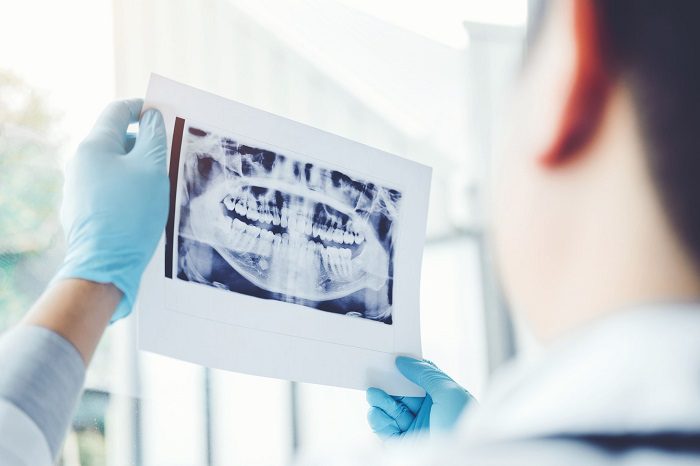Most people will see their full set of adult teeth grow into place once they reach adolescence. This is the time that orthodontists suggest undergoing treatments to align crooked smiles since the teeth are fully grown yet not completely fused into place. This way, they can shift into a straighter position with braces or other orthodontic solutions.
However, many individuals also have wisdom teeth, an extra set of molars that usually grow after puberty. Humans evolved to not require these extra teeth, and our mouths often do not have enough room for these third molars. In many cases, people will require the extraction of wisdom teeth to prevent oral health complications.
But can these extra teeth also impact the positioning of your teeth? Read on to learn more about how wisdom teeth can affect the alignment of your smile as well as your orthodontic treatment.

Will Wisdom Teeth Growth Make My Teeth Crooked?
Because the human jaw often does not have room for a third set of molars, many dental patients worry that growing wisdom teeth could lead to overcrowding in the mouth. When the teeth grow into place, they may apply pressure to the surrounding teeth, especially if there is little room for them. This could cause the other teeth to shift out of their straight alignment.
This does not occur in all cases though. Sometimes, wisdom teeth can grow without issue. And in many other instances, wisdom teeth will become impacted before pushing through the gumline. This means that the teeth get stuck in the jaw, causing discomfort for the patient along with a high risk of infection.
The dentist must then remove impacted wisdom teeth through an extraction procedure. Wisdom teeth removal will not affect your smile’s alignment significantly. But to ensure your teeth stay in their straight position, visit your dentist and orthodontist regularly.
Will Wisdom Teeth Affect Orthodontic Treatment?
If wisdom teeth start to grow during your orthodontic treatment, you might worry that it will disrupt the teeth-straightening process. But you will likely experience little changes to your treatment in this case. The dentist uses x-ray imaging to develop personalized orthodontic care, and these scans will also help them monitor wisdom teeth growth.
They can then keep an eye on the wisdom teeth and intervene to remove them if needed. If you have braces or other fixed orthodontic appliances, your dentist can still extract wisdom teeth. But if they do not interfere with your oral health or treatment, you may not need them removed at all.
You do not need to remove wisdom teeth prior to orthodontic treatment. In fact, straightening your smile prior to wisdom teeth growth can reduce the risk of overcrowding or other complications.
However, dentists and orthodontists both approach alignment treatments on a personalized basis for each patient. Learn how wisdom teeth will affect your unique smile by scheduling a consultation with your orthodontist today.

